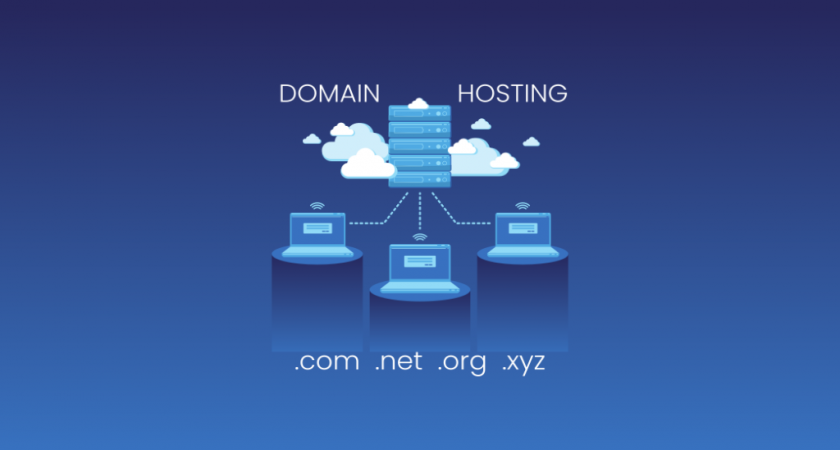Domain and Hosting for Small Nonprofits: A Comprehensive Guide
Domain and hosting for small nonprofits! In today’s digital landscape, having a strong online presence is vital for small nonprofits. A well-designed website can help you connect with donors, volunteers, and beneficiaries while showcasing your mission and impact. To establish a successful online presence, understanding domain and hosting is essential. This guide will break down these critical components and provide insights tailored for small nonprofits, ensuring your organization makes an informed decision.
What Is a Domain?
A domain is your website’s address on the internet. It’s the URL people type into their browser to access your site, such as www.yournonprofit.org. A memorable and relevant domain name helps your nonprofit stand out and is easier for supporters to find.
Importance of Choosing the Right Domain Name
For small nonprofits, a well-chosen domain name:
- Reflects Your Mission: Your domain name should represent your organization’s purpose or name clearly.
- Builds Credibility: A professional domain name (e.g.,
.orgor.ngo) enhances trust with your audience. - Improves Search Engine Visibility: Relevant keywords in your domain name can boost SEO performance.
Tips for Selecting the Best Domain Name
- Keep It Simple: Avoid long or complex names. A short and easy-to-spell domain is more memorable.
- Use Keywords: Include terms that describe your nonprofit’s mission, such as “environment,” “education,” or “health.”
- Avoid Numbers and Special Characters: These can confuse users and make your domain harder to share.
- Choose the Right Extension: Nonprofits often use
.org, which signals trustworthiness and aligns with their mission.
What Is Web Hosting?
Web hosting is the service that stores your website’s files and makes them accessible online. Hosting providers offer the technology and infrastructure needed to ensure your site is available to visitors.
Types of Hosting Services
Understanding the different hosting options is crucial for small nonprofits:
- Shared Hosting:
- Description: Multiple websites share the same server.
- Pros: Affordable, beginner-friendly.
- Cons: Limited resources and slower performance during high traffic.
- VPS Hosting (Virtual Private Server):
- Description: A step up from shared hosting, offering more resources and flexibility.
- Pros: Better performance, scalability.
- Cons: Higher cost compared to shared hosting.
- Dedicated Hosting:
- Description: Exclusive server access for your website.
- Pros: Maximum performance and control.
- Cons: Expensive, requires technical expertise.
- Cloud Hosting:
- Description: Uses multiple servers to ensure uptime and reliability.
- Pros: Highly scalable, excellent for growing nonprofits.
- Cons: Costs can fluctuate based on usage.
- Managed WordPress Hosting:
- Description: Specifically optimized for WordPress websites.
- Pros: Enhanced speed, security, and support.
- Cons: Limited to WordPress users.
Hosting Features Nonprofits Should Prioritize
When selecting a hosting provider, consider the following features:
- Reliability and Uptime: Ensure your site is accessible 99.9% of the time.
- Speed: Fast-loading websites improve user experience and search rankings.
- Scalability: Choose a plan that can grow with your nonprofit’s needs.
- Security: Look for SSL certificates, regular backups, and robust security measures.
- Customer Support: Reliable 24/7 support is crucial for resolving technical issues quickly.
- Affordability: Nonprofits often operate on tight budgets, so compare costs and look for discounts tailored for charities.
Steps to Get Started with Domain and Hosting
Follow these steps to set up your domain and hosting for your nonprofit:
1. Define Your Website Goals
Consider your nonprofit’s objectives. Will your site primarily share updates, collect donations, or recruit volunteers? Clear goals guide your domain and hosting choices.
2. Register a Domain Name
Use a domain registrar, such as Namecheap or GoDaddy, to secure your domain. Many hosting providers also offer domain registration services, often bundled with hosting plans.
3. Choose a Hosting Provider
Research hosting companies that cater to nonprofits. Providers like Bluehost, SiteGround, and DreamHost offer plans suitable for small organizations.
4. Set Up Your Website
Once your domain and hosting are ready, you can create your website using platforms like WordPress, Wix, or Squarespace. WordPress is highly recommended for nonprofits due to its flexibility and nonprofit-friendly plugins.
5. Optimize for SEO
Ensure your website is optimized for search engines. Use relevant keywords, create high-quality content, and focus on technical SEO aspects like mobile responsiveness and fast load times.
Top Hosting Providers for Nonprofits
Here are some hosting providers that stand out for their nonprofit-friendly features:
1. Bluehost
- Pros: Affordable plans, free domain for the first year, 24/7 support.
- Best For: Beginners and small nonprofits.
2. SiteGround
- Pros: Excellent performance, top-notch security, easy WordPress integration.
- Best For: Nonprofits looking for speed and reliability.
3. DreamHost
- Pros: Free domain and SSL, unlimited bandwidth, nonprofit discounts.
- Best For: Budget-conscious organizations.
4. GreenGeeks
- Pros: Eco-friendly hosting, fast speeds, scalable plans.
- Best For: Environment-focused nonprofits.
5. HostGator
- Pros: Affordable shared hosting, user-friendly tools.
- Best For: Nonprofits with minimal technical expertise.
Common Challenges for Nonprofits and How to Overcome Them
1. Budget Constraints
Many nonprofits operate on tight budgets. Look for hosting providers that offer discounts for charitable organizations or free options for smaller sites.
2. Limited Technical Expertise
Platforms like WordPress and managed hosting services simplify the setup process, allowing nonprofits to build and manage their sites without extensive technical knowledge.
3. Maintaining Website Security
Invest in hosting plans with built-in security features and regularly update your website to protect against vulnerabilities.
4. Scaling with Growth
Choose scalable hosting solutions that can accommodate increased traffic as your nonprofit grows.
Conclusion
For small nonprofits, understanding domain and hosting is a critical step in establishing a successful online presence. By choosing the right domain name and hosting provider, your organization can create a reliable and professional website that supports its mission and goals. Keep in mind your nonprofit’s specific needs, budget, and future growth when making decisions. With the right approach, your website can become a powerful tool for connecting with supporters, raising funds, and driving meaningful change.
- Affordable hosting solutions for nonprofits
- Best domain names for small charities
- How to choose hosting for nonprofits
- SEO tips for nonprofit websites
- Reliable web hosting for small organizations
- Managed WordPress hosting for nonprofits
- Budget-friendly hosting for charities











